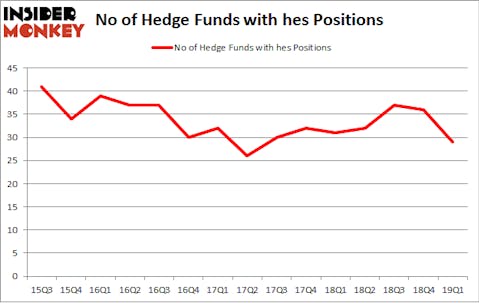Hedge funds are known to underperform the bull markets but that’s not because they are terrible at stock picking. Hedge funds underperform because their net exposure in only 40-70% and they charge exorbitant fees. No one knows what the future holds and how market participants will react to the bountiful news that floods in each day. However, hedge funds’ consensus picks on average deliver market beating returns. For example in the first 5 months of this year through May 30th the Standard and Poor’s 500 Index returned approximately 12.1% (including dividend payments). Conversely, hedge funds’ top 20 large-cap stock picks generated a return of 18.7% during the same 5-month period, with the majority of these stock picks outperforming the broader market benchmark. Interestingly, an average long/short hedge fund returned only a fraction of this value due to the hedges they implemented and the large fees they charged. If you pay attention to the actual hedge fund returns versus the returns of their long stock picks, you might believe that it is a waste of time to analyze hedge funds’ purchases. We know better. That’s why we scrutinize hedge fund sentiment before we invest in a stock like Hess Corporation (NYSE:HES).
Hess Corporation (NYSE:HES) was in 29 hedge funds’ portfolios at the end of the first quarter of 2019. HES has experienced a decrease in hedge fund sentiment recently. There were 36 hedge funds in our database with HES positions at the end of the previous quarter. Our calculations also showed that hes isn’t among the 30 most popular stocks among hedge funds.
Hedge funds’ reputation as shrewd investors has been tarnished in the last decade as their hedged returns couldn’t keep up with the unhedged returns of the market indices. Our research has shown that hedge funds’ large-cap stock picks indeed failed to beat the market between 1999 and 2016. However, we were able to identify in advance a select group of hedge fund holdings that outperformed the market by 40 percentage points since May 2014 through May 30, 2019 (see the details here). We were also able to identify in advance a select group of hedge fund holdings that’ll significantly underperform the market. We have been tracking and sharing the list of these stocks since February 2017 and they lost 30.9% through May 30, 2019. That’s why we believe hedge fund sentiment is an extremely useful indicator that investors should pay attention to.

We’re going to go over the recent hedge fund action surrounding Hess Corporation (NYSE:HES).
How have hedgies been trading Hess Corporation (NYSE:HES)?
At Q1’s end, a total of 29 of the hedge funds tracked by Insider Monkey were long this stock, a change of -19% from one quarter earlier. On the other hand, there were a total of 31 hedge funds with a bullish position in HES a year ago. With hedge funds’ capital changing hands, there exists a few key hedge fund managers who were adding to their holdings substantially (or already accumulated large positions).

When looking at the institutional investors followed by Insider Monkey, Elliott Management, managed by Paul Singer, holds the most valuable position in Hess Corporation (NYSE:HES). Elliott Management has a $1.3217 billion position in the stock, comprising 8.3% of its 13F portfolio. Sitting at the No. 2 spot is Impala Asset Management, led by Robert Bishop, holding a $141 million position; 7.4% of its 13F portfolio is allocated to the stock. Other hedge funds and institutional investors with similar optimism encompass Andreas Halvorsen’s Viking Global, Robert Polak’s Anchor Bolt Capital and Paul Singer’s Elliott Management.
Due to the fact that Hess Corporation (NYSE:HES) has experienced a decline in interest from the entirety of the hedge funds we track, we can see that there were a few hedgies that decided to sell off their entire stakes heading into Q3. At the top of the heap, Jim Simons’s Renaissance Technologies sold off the biggest stake of all the hedgies followed by Insider Monkey, worth close to $82.5 million in stock, and Daniel S. Och’s OZ Management was right behind this move, as the fund said goodbye to about $8.2 million worth. These bearish behaviors are interesting, as total hedge fund interest fell by 7 funds heading into Q3.
Let’s now review hedge fund activity in other stocks – not necessarily in the same industry as Hess Corporation (NYSE:HES) but similarly valued. These stocks are Entergy Corporation (NYSE:ETR), Ameren Corporation (NYSE:AEE), Waters Corporation (NYSE:WAT), and Liberty Global Plc (NASDAQ:LBTYK). This group of stocks’ market values match HES’s market value.
| Ticker | No of HFs with positions | Total Value of HF Positions (x1000) | Change in HF Position |
|---|---|---|---|
| ETR | 33 | 1469733 | 2 |
| AEE | 21 | 739961 | -2 |
| WAT | 30 | 689161 | -2 |
| LBTYK | 33 | 3302492 | 1 |
| Average | 29.25 | 1550337 | -0.25 |
View table here if you experience formatting issues.
As you can see these stocks had an average of 29.25 hedge funds with bullish positions and the average amount invested in these stocks was $1550 million. That figure was $1774 million in HES’s case. Entergy Corporation (NYSE:ETR) is the most popular stock in this table. On the other hand Ameren Corporation (NYSE:AEE) is the least popular one with only 21 bullish hedge fund positions. Hess Corporation (NYSE:HES) is not the least popular stock in this group but hedge fund interest is still below average. This is a slightly negative signal and we’d rather spend our time researching stocks that hedge funds are piling on. Our calculations showed that top 20 most popular stocks among hedge funds returned 1.9% in Q2 through May 30th and outperformed the S&P 500 ETF (SPY) by more than 3 percentage points. Unfortunately HES wasn’t nearly as popular as these 20 stocks (hedge fund sentiment was quite bearish); HES investors were disappointed as the stock returned -4.1% during the same time period and underperformed the market. If you are interested in investing in large cap stocks with huge upside potential, you should check out the top 20 most popular stocks among hedge funds as 13 of these stocks already outperformed the market so far in Q2.
Disclosure: None. This article was originally published at Insider Monkey.




